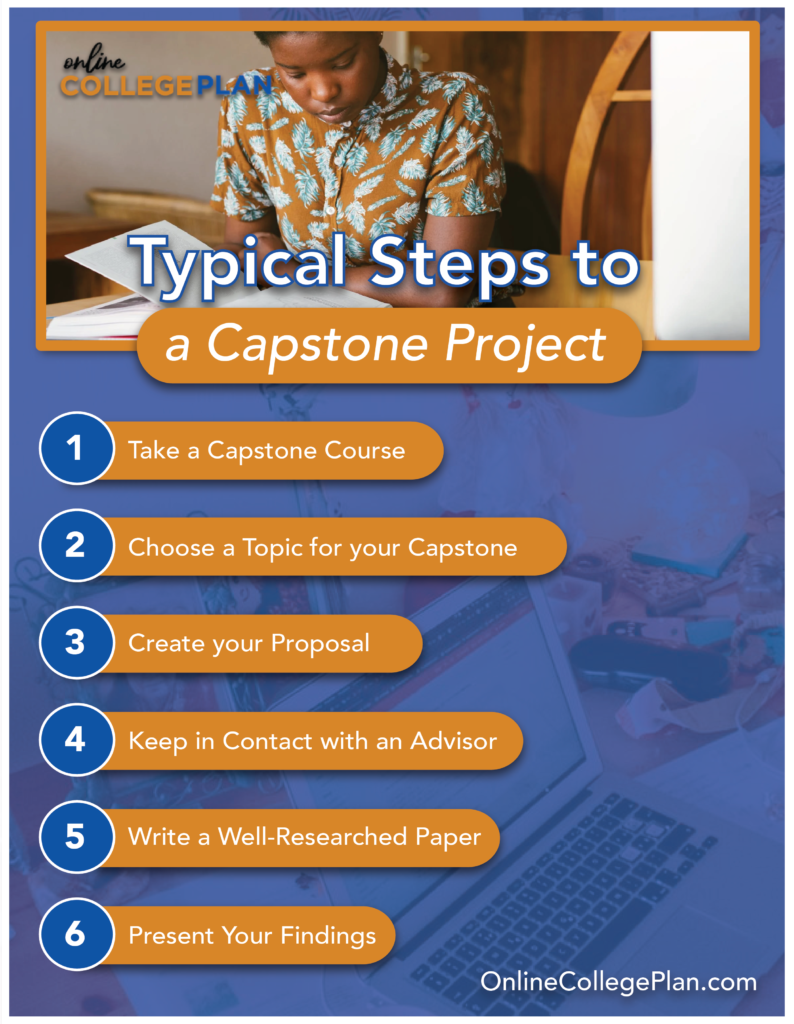Capstone Project vs. Senior Thesis
A capstone project is similar to a senior thesis but not the same. Both are valuable parts of any educational experience, but it’s essential to understand the difference between them, especially since there could be some overlap.
Capstone projects, also known as culminating projects or senior exhibitions, aim to accomplish more than a traditional thesis. Students must integrate more skills to solve a problem put forth by a project committee or a client. The capstone project should address the intellectual community and the public, though this can be present in various ways.
On the other hand, a thesis is an academic paper meant for other intellectuals within the field. That said, it is possible to have a thesis as part of your capstone project.
You might also like: How to Plan Your Senior Thesis
What Does a Capstone Project Include?
Since it’s a comprehensive demonstration and conclusion to a student’s academic journey, a capstone can involve several components. Not every capstone features the same elements or pathway, but there are some commonalities.
Typical Steps to a Capstone Project

The Capstone Course
Depending on your major and school, you may have one general capstone course or a selection of courses. Some programs feature three separate classes within a major so that students can narrow their focus. Additionally, some capstones may require students to attend a seminar or work in groups as part of the experience.
Choose Your Topic
Generally, your topic should involve something related to your field of study. It may be a problem presented by a business or potential client, or it could be a broader issue.
The topic should interest you and create a space to exercise critical thinking and planning skills while maintaining established deadlines. For example, a nursing student may attempt to improve a specific diagnostic test, or somebody in information technology may create new software to enhance existing voice recognition programming.
The Proposal
Before beginning a capstone course, students must outline a detailed proposal in the form of an academic paper. It must provide a broad overview of what the student intends to research. For example, a typical proposal includes:
- Introduction to the chosen topic
- Theories and hypothesis
- Literature review
- The chosen methodology
- Alternatives and issues that could impact the project
It’s important to note that even if ten students enroll in a capstone course, each project would be unique and reflect individual approaches, skills, and interests.

An Advisor
Students must maintain regular contact with an advisor throughout the capstone process. Advisors can provide invaluable support and guidance to ensure a project fulfills all requirements and adheres to established timelines. Generally, students work one-on-one with their capstone advisor to foster a robust and open relationship.
